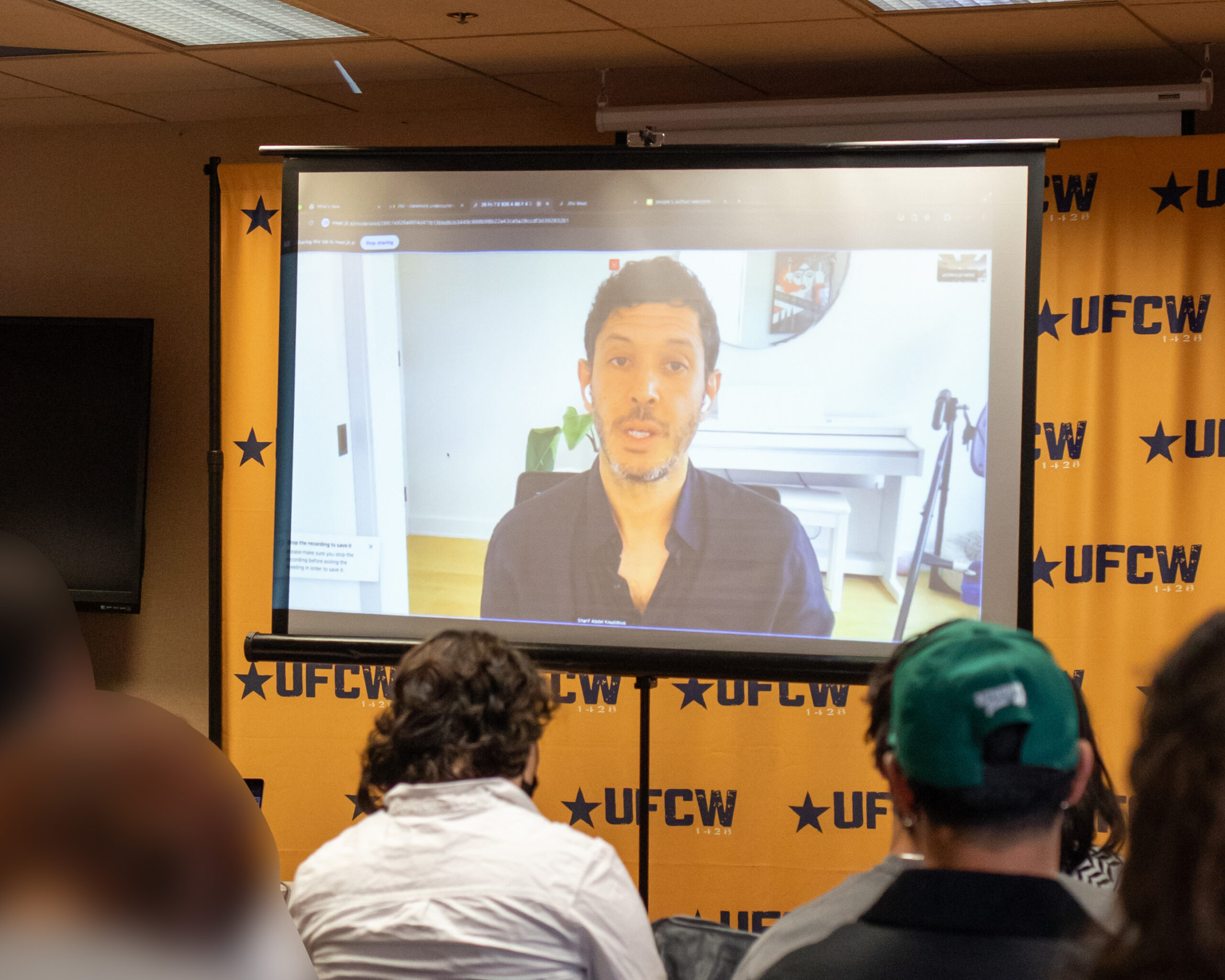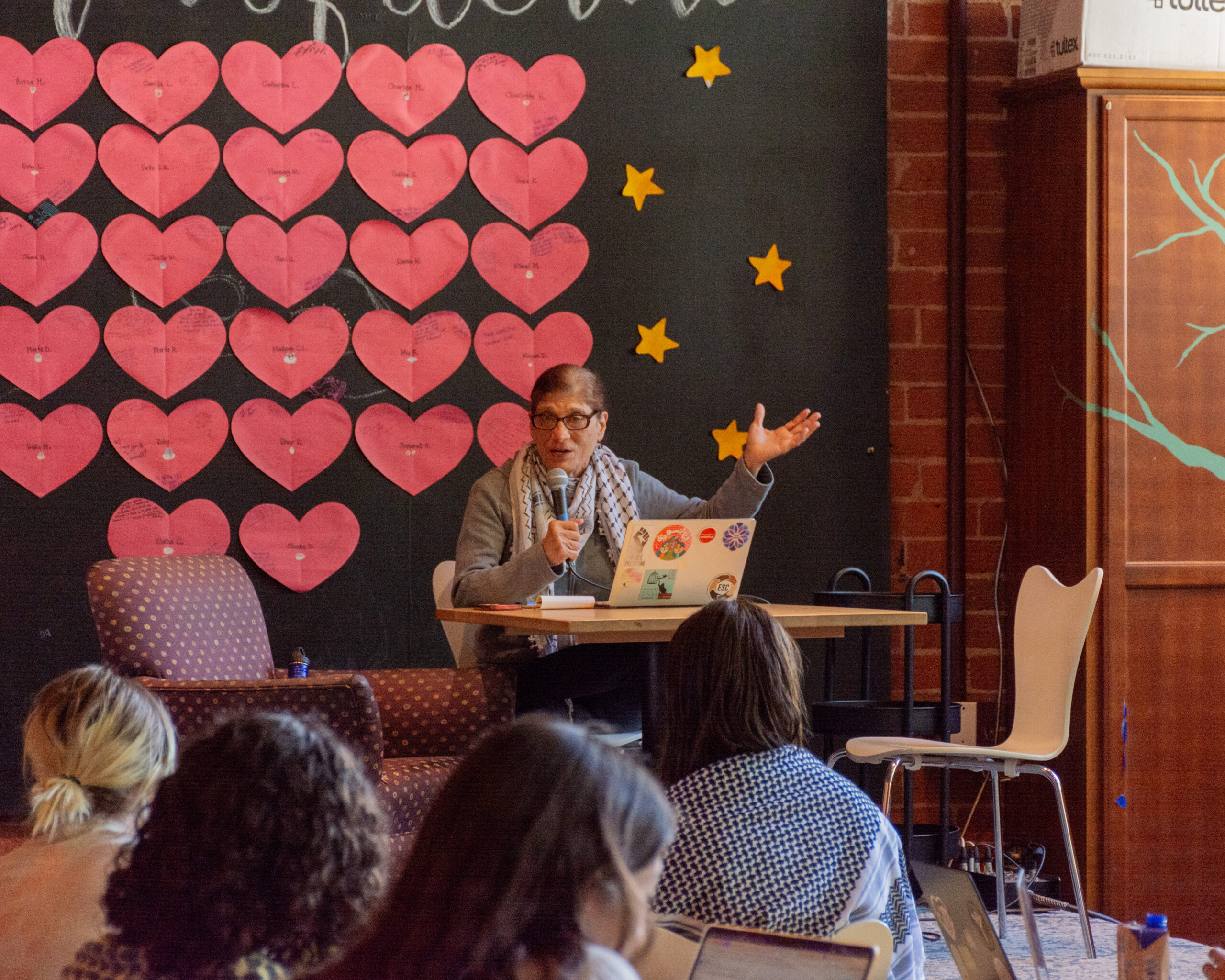
February 2, 2023
"It's horrible that you're not asking the people that are keeping the school running how they want it run," said Leila Riker PZ '25.

More than 20 students and Pitzer workers took part in a delegation yesterday protesting a new location-based system for clocking in that workers complained was inaccessible and stress-inducing. The delegation is the first of 2023 and comes amid ongoing union contract negotiations.
While workers previously clocked in to work via card swipe or pin entry, Pitzer implemented a new system starting Jan. 1 that required workers to sign in using a username and password on their phone while in physical proximity to a designated station, according to Tony Hoang, a Pitzer groundskeeper and union shop steward.
Pitzer made the change as part of a larger switch from Kronos to Workday for timekeeping, but Pomona College and Harvey Mudd College were able to make the same switch to Workday while preserving card swipes for clocking in, according to Hoang.
Hoang and other union leaders organized the delegation after workers complained about technological and language barriers posed by the system, including older workers who didn’t have familiarity with or access to the technology needed.
“A lot of people are coming to us and [saying], hey, I’m struggling with this. We gotta do something about this. We gotta change this.” Hoang said. “That’s how this came about in the first place.”

The delegation party attempted to speak to a member of the Human Resources department, but were not answered when knocking on the office door. Hoang said he believes the department intentionally closed the office to avoid the delegation, as the date and time were announced publicly beforehand.
“They started doing this ever since we started delegating. They started working remotely, turning off all the lights and making it seem like no one’s in there when actually there is someone in there right now,” he said to the delegation party outside of the HR office.
The delegation ultimately voiced their concerns to Senior Director of Facilities Mark Crawbuck at his office in the basement of McConnell Center.
“I don’t know a whole lot about computers…it’s really stressful. I just want to come in and clock in and do my job and go home,” Dominic Salcido, senior maintenance mechanic, said to Crawbuck at the delegation.
“We’re all struggling with it. And there are some people that did not grow up with technology. This is not something normal to them and it shouldn’t be placed on them all of a sudden,” Hoang said at the delegation.
Even without access barriers, the new system has made clocking in and out unnecessarily stressful, Hoang said at the delegation. “My phone died the other day at work. I couldn’t even get authentication to clock out,” he said.

The “underlying issue” was that the switch was made without taking any input from workers, Hoang said.
“We’re the workers and we’re the people that actually use this system, and there hasn’t been any kind of asking us how we feel about it, our experiences with it,” he said.
Students at the delegation spoke up in support of workers.
“I really think it’s horrible that you’re not asking the people that are keeping the school running how they want it run,” said Leila Riker PZ ’25 at the delegation. “There was a way that worked for them and it was changed without their permission or their consent, without their input.”
One student organizer, who requested anonymity to prevent discrimination in future employment, emphasized that student support for workers will last even as individual students graduate.
“All of us [students] are temporary. But these [workers] are gonna be here for 20 years, 30 years. They deserve respect and we’re gonna be back over and over again if you don’t give them that,” they said at the delegation.
Hoang told Undercurrents he was optimistic that the clock-in system would change after the delegation.
“We’re starting the conversation and then we’re gonna hopefully collaborate and make something happen and we’re gonna continue to delegate if we need to,” he said. “As long as we know why we’re fighting and we’re doing it for the right reasons and we keep going forward, change is gonna happen.”


Commentary

Palestine

Palestine

Undercurrents reports on labor, Palestine liberation, prison abolition and other community organizing at and around the Claremont Colleges.

Issue 1 / Spring 2023
Setting the Standard
How Pomona workers won a historic $25 minimum wage; a new union in Claremont; Tony Hoang on organizing
Read issue 1